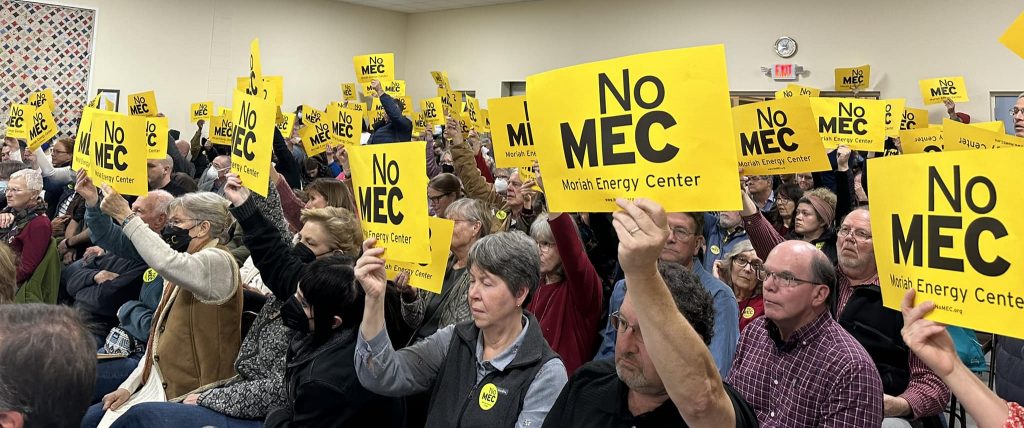Update: July 20, 2020
The U.S. Army Corps of Engineers extended the comment period for the water infrastructure permit at the historic Rassawek site until June 7, 2020. More than 12,000 comments were filed against the James River Water Authority’s permit application, according to Cultural Heritage Partners, legal counsel to the Monacan Indian Nation.
The Monacan Indian Nation is speaking out against a proposed water infrastructure development at the confluence of the James and Rivanna rivers in Virginia, the same location as the federally recognized tribe’s historic capital of Rassawek.
The James River Water Authority is seeking a permit from the U.S. Army Corps of Engineers for the pump station and raw water intake at the Rassawek site, which is also known as Point of Fork. The project would connect to a water treatment plant in Louisa County and is intended to support development of the Zion Crossroads community in Louisa and Fluvanna counties.
The Monacan Indian Nation and their legal representatives, Cultural Heritage Partners, argue that water infrastructure at this location would disturb Monacan burial sites. According to local news reports, 50 individuals spoke against locating the project at the Rassawek site at a March 11 public hearing.
“We will not take any amount of money to let you go through there and destroy our ancestral homeland,” Monacan Chief Kenneth Branham said, according to The Daily Progress. “There are ancestral remains in that area. I did a major reburial once before and I do not want to do that again. You can move that site.”
The James River Water Authority ultimately voted to submit the Rassawek site to the Army Corps as its preferred location for the project after considering more than a dozen other options. According to The Daily Progress, the water authority’s consultants found that the alternative sites did not meet the project needs for cost, available technology and logistics. Prior to the vote, Monacan leaders had urged the water authority to further investigate a site two miles upstream from the current proposed location.
The Army Corps is accepting public comment until May 7. The Monacan Indian Nation has asked for an extension to this deadline, but the Army Corps did not grant that request. Comments can be emailed to the agency at steven.a.vanderploeg@usace.army.mil.
“We are not naïve,” Branham wrote in a letter to The Central Virginian. “We understand that the 400-year record in Virginia of wanton destruction of Native American culture and history is not over. But times are changing, and we’re drawing a hard line at destruction of our historic capital and our ancestors’ resting place.”
“Human remains, the bones of Monacan ancestors, have been found multiple times at the Rassawek site,” states an open sign-on letter to Virginia Gov. Ralph Northam and Commander Patrick Kinsman of the Army Corps of Engineers. “JRWA now seeks a legally required burial permit so it can proceed with the disinterment and relocation of Monacan people. The Commonwealth of Virginia should not permit the disturbance of Monacan ancestors and force the tribe to endure the traumatic and somber process of repatriating and reburying their ancestors.”
Nonprofit groups are also opposing the project. At the March 11 meeting, Kirk Bowers of the Piedmont Group Sierra Club argued against using cost as the primary decision-making factor in choosing the site.
“The value of our cultural heritages and resources simply outweigh the value gained from building a pump station at Rassawek,” he stated, according to The Daily Progress.
The Southern Environmental Law Center, a nonprofit law firm, and Preservation Virginia, a historic preservation group, sent a letter to the Army Corps asking the agency to scrutinize the impacts of the project under the Clean Water Act, National Historic Preservation Act and National Environmental Policy Act, and to consider other sites.
“This sensitive area should be protected, not destroyed,” Southern Environmental Law Center Senior Attorney Trip Pollard said in a press statement. “It has been clear for some time that the proposed project is likely to have serious impacts on significant historic, cultural, and archaeological resources that highlight the region’s complex and diverse past. Alternatives are available to meet local water needs.”
Related Articles
Latest News

Leave a comment
Your email address will not be published. Required fields are marked *





FERC extends MVP Southgate certificate for an additional three years